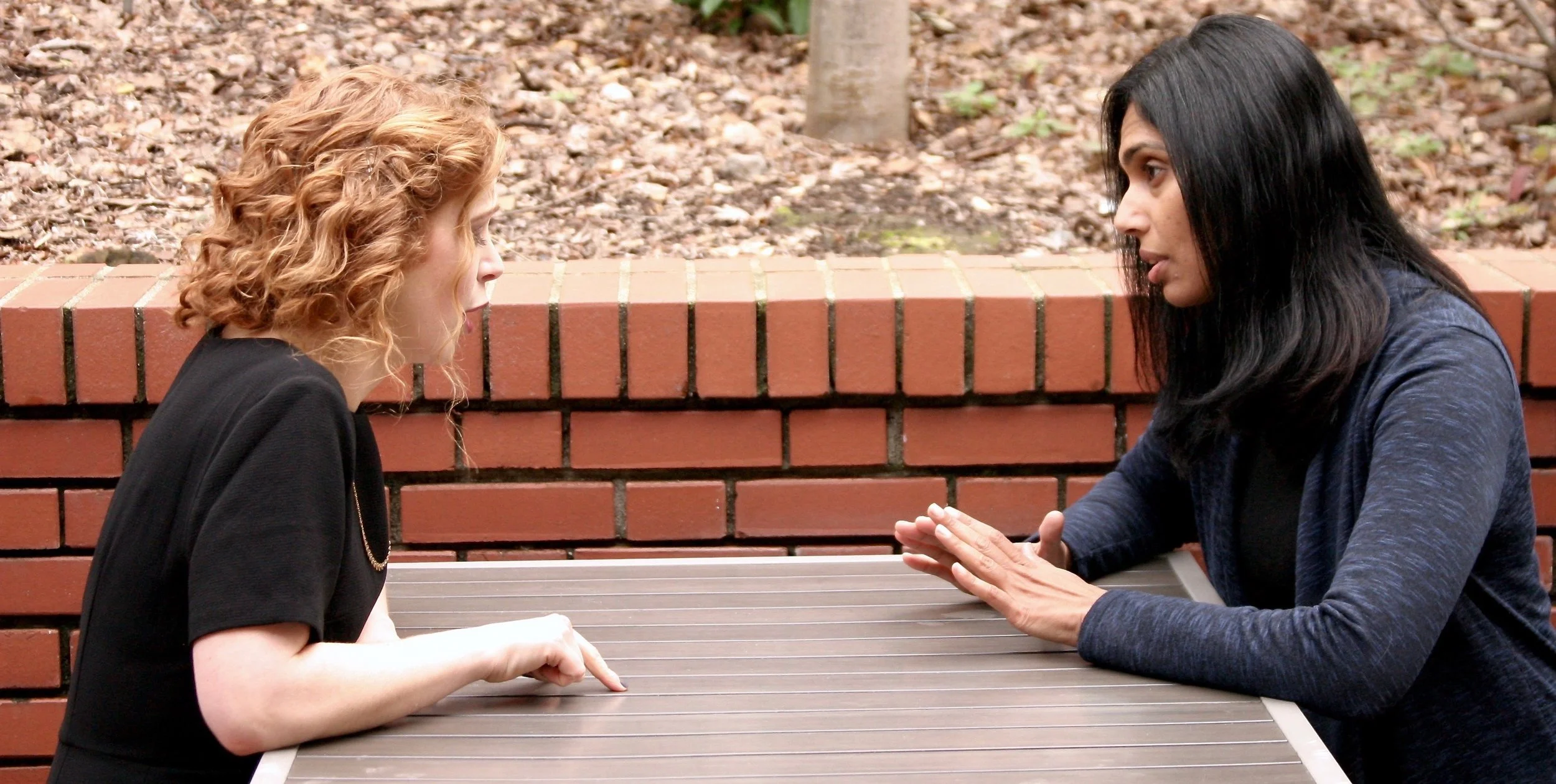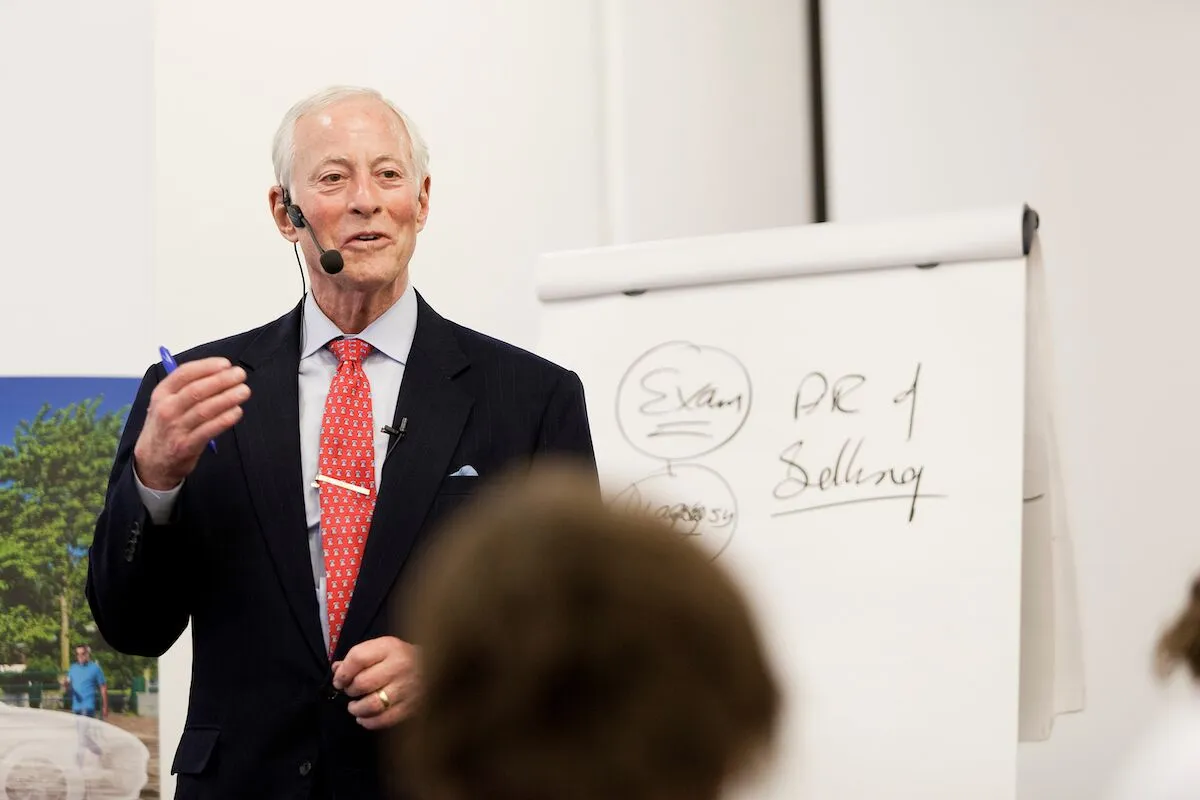Finding My Voice After Sixty Years of Silence
I remember standing in front of my daughter's wedding guests, champagne glass trembling in my hand, trying to force words past the lump in my throat. Here I was, a woman who had lived six decades on this earth, and I couldn't string together three sentences to toast my own child. My heart pounded so hard I thought everyone could hear it. My mouth went dry. The room started spinning. I sat down without saying a word.
That moment changed everything for me. I realized I had spent most of my life avoiding speaking up – in meetings at work, at community gatherings, even at family dinners. I had stories to tell, wisdom to share, but fear kept my voice locked away. If you're reading this, maybe you understand that feeling. Maybe you've also felt your throat close up when all eyes turn to you. Maybe you've convinced yourself that some people are just "born speakers" and the rest of us should stay quiet.
But here's what I learned: that's simply not true. Over the past few years, I've spoken at community events, led workshops at my local library in Sudbury, and yes, I finally gave that wedding toast at my son's marriage last summer. I'm not a professional speaker, and my English isn't perfect – I still mix up my words sometimes. But I've discovered that overcoming stage fright isn't about being perfect. It's about being real, being prepared, and being kind to yourself.
What I'm sharing with you today isn't theory from some textbook. These are the actual strategies that helped me go from panic attacks to genuine confidence. They worked for me at 62, and they can work for you at any age.
Understanding What's Really Happening in Your Body
The first thing that helped me was understanding what stage fright actually is. For years, I thought something was wrong with me. Why did my body betray me like this? Why couldn't I just be normal?
Then I learned that stage fright is your body trying to protect you. When you stand in front of people, your brain perceives a threat – not a physical danger, but a social one. Your ancestors survived by staying in the group's good graces, so your nervous system treats public embarrassment like a life-or-death situation. Your body floods with adrenaline, preparing you to fight or run away. That's why your heart races, your hands shake, and your mind goes blank.
Understanding this changed everything for me. I wasn't broken. I was just human. My body was doing exactly what it evolved to do. Once I stopped fighting against these sensations and started working with them, everything shifted.
The Physical Signs I Learned to Recognize
I started keeping a little journal of what happened to my body before speaking. Here's what I noticed: shallow breathing (sometimes I'd almost forget to breathe), cold hands but sweaty palms, tension in my shoulders and jaw, and this strange feeling like my thoughts were moving through mud. Sometimes I'd get a headache or feel nauseous.
Writing these down helped me see patterns. The symptoms always peaked about five minutes before I had to speak, then gradually settled once I actually started talking. Knowing this helped me prepare better and not panic when the feelings showed up.
The Breathing Technique That Actually Works
Every article about stage fright tells you to "just breathe deeply," but nobody explains how to do it properly. I tried deep breathing for years and it never helped – sometimes it made me feel more anxious because I'd get lightheaded.
Then a friend who teaches yoga in North Bay showed me a different approach. She called it "square breathing" or "box breathing." Here's exactly how I do it, and I practice this every single day now, not just before speaking.
Sit comfortably and breathe in through your nose for a count of four. Hold that breath for four counts. Breathe out through your mouth for four counts. Hold empty for four counts. That's one cycle. I do this for about two minutes before any speaking situation.
What makes this work is the holding part. When you hold your breath after exhaling, your body triggers something called the "dive reflex" – your heart rate naturally slows down. This counters that adrenaline rush. I was skeptical at first, but I practiced it every morning with my coffee for three weeks. Now it's automatic, and it genuinely calms my nervous system.
My Pre-Speaking Routine
I arrive early to wherever I'm speaking – at least twenty minutes if I can. I find a quiet corner or even sit in my car. I do three rounds of square breathing. Then I do some gentle neck rolls and shoulder shrugs to release tension. I shake out my hands like I'm flinging water off them. This probably looks silly, but it helps release nervous energy.
Finally, I remind myself of one simple truth: the audience wants me to succeed. They're not hoping I'll fail. Most of them are probably relieved they're not the ones speaking. This thought alone takes so much pressure off.
Preparation That Builds Real Confidence
I used to think I could just "wing it" or that over-preparing would make me sound stiff. That was fear talking, giving me an excuse to avoid the work. Real preparation is what gave me actual confidence – not the fake "just believe in yourself" kind, but the solid knowledge that I knew my material inside and out.
Here's my honest preparation process. First, I write out everything I want to say. Not to memorize word-for-word, but to organize my thoughts. I read it out loud to myself, which always reveals the awkward parts. Then I boil it down to key points on a small card – usually just three to five main ideas.
Next comes the part that made the biggest difference: I practice out loud, alone, at least five times. Not in my head – actually speaking the words. I practice in front of my bathroom mirror, in my car, while I'm walking my dog. Each time, I say it slightly differently, which keeps it natural rather than memorized.
The Power of Knowing Your Opening Cold
One specific trick that saved me: I memorize just the first two minutes of whatever I'm saying. Word perfect. This gives me a strong start even when I'm most nervous. Once I get through that opening and see people responding positively, the rest flows much easier.
For my son's wedding toast, I must have practiced that opening thirty times. "When Michael was three years old, he told me he was going to marry a princess. Today, I can see he kept that promise." Simple, heartfelt, and I knew I could say it even if my mind went completely blank. And you know what? My mind did go blank for a second, but my mouth kept going because I'd practiced so much.
Reframing How I Think About the Audience
For most of my life, I imagined audiences as judges waiting to criticize me. Every face looked stern and disapproving in my mind. I'd scan the crowd and find the one person who wasn't smiling and convince myself everyone hated what I was saying.
A counselor I saw in Thunder Bay helped me challenge this thinking. She asked me: "When you're in the audience and someone is speaking, what are you thinking?" I realized I'm usually thinking about what they're saying, hoping they'll share something useful, or sometimes just thinking about what I'll make for dinner. I'm not judging them harshly. I'm certainly not hoping they'll fail.
Why would I assume others are any different? This realization was huge for me. Most people in your audience are kind, distracted, or neutral. They're not your enemies. They're just people who showed up, probably glad they're not the ones speaking.
Making Eye Contact Without Panic
I used to avoid eye contact completely, which made me seem nervous and disconnected. Now I use a technique I learned from a community theater group here in Ontario. I pick three friendly faces in different parts of the room – people who are smiling or nodding. I rotate between these three people, speaking directly to them for a few sentences each.
This makes it feel like I'm having three small conversations instead of one big performance. It's less overwhelming, and it helps me connect with real people instead of facing a scary blur of faces. Often, other people around my "anchor" faces start nodding and smiling too, which builds a positive feedback loop.
What to Do When Your Mind Goes Blank
This still happens to me sometimes, and I've learned it's completely normal. Your working memory gets disrupted by stress. The key is having strategies ready for these moments instead of panicking.
My first strategy: I pause and take a visible breath. I might say something like, "Let me think about how to explain this clearly." This pause feels like forever to you but seems perfectly natural to the audience. It gives your brain a moment to reset.
Second strategy: I always have my key points written on a card. There's no shame in glancing at notes. Professional speakers do it all the time. I keep mine in my hand or on a podium, and when my mind blanks, I simply look down and find my place again.
Third strategy: I learned to embrace silence. A three-second pause feels like thirty seconds when you're nervous, but to the audience, it just seems like you're being thoughtful. Some of the most powerful moments in my talks have been when I paused, gathered my thoughts, and continued. People told me later that those pauses made me seem more authentic.
The Permission to Be Imperfect
Here's something that took me years to accept: imperfection makes you more relatable, not less credible. When I stumble over a word or lose my train of thought and acknowledge it with a small smile, people warm up to me. They see I'm human, just like them.
At a community meeting last winter, I completely blanked on a word. Just gone. Instead of panicking, I laughed and said, "You know, the word I'm looking for is hiding from me right now, but you know what I mean." People chuckled, someone called out the word I needed, and we all moved on. That small moment of vulnerability created more connection than perfect delivery ever could.
Starting Small and Building Gradually
I didn't go from terrified silence to confident speaking overnight. I started ridiculously small – so small it felt almost silly. But that's exactly why it worked.
My first "practice audience" was my book club – just six women I'd known for years. I volunteered to give a five-minute summary of our book. I was nervous even with these friends, but it was manageable nervous, not paralyzing nervous. I survived it. That success, tiny as it was, gave me courage for the next step.
Then I spoke up at a town hall meeting in Sudbury – just stood and asked one question. My voice shook, but I did it. A few months later, I volunteered to give a short presentation at my church about a charity project. Then a longer talk at the library. Each experience built on the last.
The key was making each step just slightly outside my comfort zone, not completely terrifying. If you try to jump from never speaking to giving a major presentation, you're likely to have a bad experience that reinforces your fear. Small steps work.
Finding Safe Practice Spaces in Canada
One resource that helped me tremendously was finding a local Toastmasters club. There are chapters across Canada, including smaller communities. It's specifically designed as a safe place to practice speaking. Everyone there is working on the same skills, and they're supportive rather than critical.
If Toastmasters isn't your style, look for community education classes on public speaking. Many libraries, community centers, and continuing education programs offer them. I took a six-week course through our local college that was specifically for older adults, which made me feel less self-conscious.
You can also create your own practice group. I know three other women from my neighborhood who were all anxious about speaking, so we started meeting monthly to practice presenting to each other. We call ourselves the "Nervous Nellies," and we've all grown so much together.
The Mental Strategies That Changed My Thinking
Beyond physical techniques, I had to change the stories I told myself. For sixty years, I'd been telling myself "I'm not a speaker" and "I'm terrible at this" and "Everyone will judge me." These thoughts became self-fulfilling prophecies.
I started challenging these thoughts with evidence. Was it really true that I was terrible at this? Or had I just avoided it so much that I never developed the skill? When I thought back, I realized I'd had successful conversations, told stories that made people laugh, explained things clearly to my grandchildren. I could communicate – I just got scared when it was formal.
I began rewriting my internal narrative. Instead of "I'm not a speaker," I told myself "I'm learning to speak more confidently." Instead of "Everyone will judge me," I reminded myself "Most people are supportive, and the ones who aren't don't matter." Instead of "I'll definitely mess up," I acknowledged "I might make small mistakes, and that's perfectly okay."
The Visualization Exercise I Do
Every night for a week before I speak, I spend five minutes visualizing success. I close my eyes and imagine walking up to speak feeling calm. I picture myself making eye contact, speaking clearly, maybe even making people smile. I imagine finishing and feeling proud of myself.
This isn't just positive thinking fluff – there's actual science behind it. Your brain can't fully distinguish between vividly imagined experiences and real ones. When you repeatedly visualize success, you create mental pathways that make the real thing easier. Athletes use this technique all the time.
I also visualize handling setbacks well. I imagine losing my place, pausing calmly, finding my spot, and continuing. I imagine someone asking a tough question and responding thoughtfully. This mental rehearsal means I'm not caught off guard when these things happen in reality.
Accepting That Some Nervousness Never Goes Away
Here's something I wish someone had told me earlier: even confident speakers get nervous. The goal isn't to eliminate nervousness completely – it's to stop letting it control you.
I still get butterflies before speaking. My hands still get a bit shaky. But now I interpret these sensations differently. Instead of "Oh no, I'm panicking, this is terrible," I think "My body is getting ready to perform. This energy will help me be more engaging." Same physical sensation, completely different meaning.
Professional performers talk about this all the time. They say the day they stop getting nervous is the day they stop caring. Some nervousness means you care about doing well, which is actually a good thing. It keeps you sharp and focused.
The Difference Between Helpful and Harmful Anxiety
I learned to distinguish between helpful nervousness and harmful panic. Helpful nervousness feels like anticipation, energy, aliveness. It makes you alert and engaged. Harmful panic feels overwhelming, makes you want to flee, and interferes with your thinking.
When I feel myself sliding from helpful nerves into harmful panic, I use my breathing technique and remind myself: "This is just adrenaline. It will pass. I'm prepared. I can do this." Usually, acknowledging the panic and not fighting it helps it settle down.
Speaking as an Older Adult in Canada
I want to address something specific about overcoming stage fright when you're not young anymore. Our generation wasn't encouraged to speak up the way young people are today. Many of us were taught that drawing attention to ourselves was impolite, especially women. We learned to stay quiet, to defer, to not make a fuss.
Unlearning these deeply ingrained patterns takes time and self-compassion. I had to give myself permission to take up space, to believe my thoughts were worth sharing, to accept that my voice mattered even with my accent and my age.
But here's the beautiful thing about speaking up later in life: we have so much wisdom and experience to share. We've lived through things younger people can't understand yet. Our perspectives are valuable. When I finally started speaking, people thanked me for sharing stories about raising kids before the internet, about immigrating to Canada, about building a life from scratch. These stories matter.
Addressing Practical Concerns
Some practical issues I've had to work with: my voice isn't as strong as it used to be, so I've learned to project better and use microphones when available. I sometimes forget words more easily now, so I'm more careful about having notes. My hands shake more than they used to, so I don't hold papers – I use cards or set notes on a podium.
These aren't failures or signs that I shouldn't speak. They're just adaptations, the same way I use reading glasses now or take the stairs more slowly. You work with the body and mind you have, and you find ways to communicate effectively regardless.
Moving Forward With Your Voice
If you've read this far, you're probably someone who wants to overcome your fear of speaking. Maybe you have a specific event coming up – a toast, a presentation at work, a speech at a community meeting. Maybe you're just tired of staying silent when you have things to say.
Here's what I want you to know: you can do this. Not because you'll become a perfect speaker overnight, but because you can take one small step, then another, and gradually build confidence through experience. Every person who seems like a natural speaker was once scared too. The difference is they pushed through the fear enough times that it became manageable.
Start with the breathing. Practice it daily until it becomes automatic. Then find one small, low-stakes opportunity to speak – maybe at a family dinner, a small meeting, or with a group of friends. Focus on preparation and those mental strategies we talked about. Be kind to yourself when it's not perfect.
Remember that your voice, your stories, your wisdom – they matter. The world needs to hear from people of all ages, backgrounds, and experience levels. Your imperfect, authentic voice is more valuable than you realize.
Resources Available to You
If you want additional support, look into local public speaking courses through community colleges or continuing education programs. Many Canadian communities have Toastmasters chapters, which you can find through their website. Libraries often host speaking workshops or can point you toward resources.
Online, there are good courses specifically for overcoming stage fright, though I personally learned better in-person where I could practice with real people. Consider working with a counselor if your anxiety is particularly severe – there's no shame in getting professional help for something that's been holding you back.
Most importantly, find your people – others who are working on the same skills. Speaking with others who understand your fear makes the journey less lonely and more encouraging.
The Gift of Finding Your Voice
Looking back at that wedding five years ago when I couldn't speak, I feel compassion for the woman I was then. She was so scared, so convinced she had nothing valuable to say. I wish I could go back and tell her that her voice mattered, that she had important things to share, that she was stronger than she knew.
Since then, I've spoken at community events, shared my immigration story at a local school, given presentations at my library, and yes, delivered that toast at my son's wedding. Each time still brings some nervousness, but it also brings joy, connection, and the satisfaction of knowing I didn't let fear win.
The process of overcoming stage fright has given me more than just speaking skills. It's given me confidence in other areas of life. It's shown me that I can face fears and come out stronger. It's connected me with people who heard my stories and shared their own. It's reminded me that growth doesn't have an age limit.
Your journey will be different from mine. Maybe you'll move faster, maybe slower. Maybe you'll face different challenges or discover different strategies that work for you. That's okay. What matters is that you start, that you keep going even when it's uncomfortable, and that you give yourself credit for every small victory along the way.
You have a voice, and it deserves to be heard. Don't let fear keep it locked away any longer. Take that first small step. Practice that breathing. Find that safe space to begin. Your future self will thank you for the courage you showed today.




